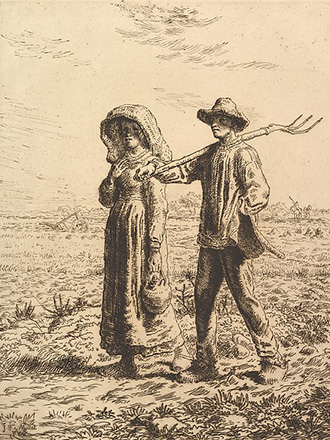Breakdown of Feudalism
In many ways, the breakdown of feudalism led to the development of the modern welfare state. Feudalism refers to a social, economic, and political order that dominated European societies for hundreds of years.
During feudalism, wealthy landowners and peasants established a tenuous mutuality of need. The landowners needed the peasants to farm their lands as well as to raise an army in case of invasion or war. The peasants relied on the landowners for protection, land, and subsistence when times became hard. While the landowners took more than their share of the food and other goods produced, their role ensured that they had some responsibility to ensure that welfare of the peasants on their land. This sense of responsibility is termed noblesse oblige.
